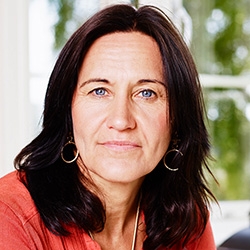
Search Results: understanding
-
- Make use of felt-sense and somatic awareness to support faster and deeper shifts in yourself and others
- Master silent empathy to give more ease and flow in your empathy guessing
- "Streetify" your NVC practice by learning how to make your NVC practice more fluent, colloquial, and "natural" and match the person you're speaking with
- De-mystify empathy guessing by learning to identify key linguistic queues
- Build an "emergency empathy" tool kit---with "quick fixes" for challenging situations by using each step of the model for maximum effectiveness
- Interplay both the NVC "mindset" (consciousness/intention) and the NVC "tool kit" for greater ease, fluency and effectiveness
-
Trainer Tip: Our differences are not in our needs, but in how we attempt to meet them. This simple truth can help you lessen the conflicts in your life and your judgments of other people. Rather than focus on where you disagree, focus on where you are the same. This shift can make a profound difference in your ability to understand yourself and other people, and to bring unity to your life.
-
Dialogue is a life-changing, heart-opening experience. It’s collaboration instead of compromise. Join Miki Kashtan for a practical, step-by-step framework to help you understand how a community develops, how to maintain or repair a community, and how this unique process creatively supports you and each member of your community in getting things done.
-
- Gain a new, surprising, and exciting connection to yourself that will enable you to both deepen the sense of power in your life and actualize everything you've always dreamed of…
- Experience being fully present in the world — despite your habits — so that you'll always be connected to your inner center and thus be able to choose at any given moment where to take your life…
- Understand how to create within yourself (and others!) a sense of flow and love, making your life much more beautiful and exciting…
- Learn how to open up in your relationships in ways you never thought would be possible, creating an entirely different closeness and intimacy in your life…
-
Trainer Tip: Sometimes when we look to fix someone's problems we think we're doing it to make them feel better, but in reality we are uncomfortable and we want to feel better. Instead of assuming you know what their problem is or what they need, listen deeply. Your listening presence can bring relief to the both of you and provide additional opportunities for healing. And along the way they may find their own way to a solution.
-
Trainer Tip: Requests include a specific action to help us get our needs met. If we have a complaint or in conflict, and we don’t make specific requests, people are left guessing and/or wondering about what will meet our needs. Our chances for getting our needs met can then become limited. Instead, try ending with a request to let the other person know exactly what you would like to happen.
-
Trainer Tip: One of the swiftest ways to close our hearts is having judgmental thinking or looking to get our way. How open are you when you're in this mode? The goal in peaceful living is to approach our relationships with an open heart. Start conversations today with an intention to connect with other people.
-
- Discover what triggers shame in you, and how to transform it
- Learn to navigate a shame attack and make good use of it
- Expand your capacity for recognizing when others are experiencing shame
- Connect with others who get trapped in shame avoidance patterns
- Allow your vulnerability to bloom by disentangling shame from fear
-
Trainer Tip: Even when it's tempting to coerce or match might with might, we can strive to meet our needs without negatively affecting others. Instead of convincing anyone to do it our way or to value the same things we value, we can focus on what we value: compassion among people and valuing everyone’s needs. By doing this we are actually more likely to meet our own needs and we are better able to live peacefully.
-
Trainer Tip: Oftentimes, when we mix an evaluation and observation, we promote defensiveness in other people. When we are able to separate the two, we are more likely to create opportunities to promote open dialogue about our concerns. Be aware of your evaluations and observations today.
-
The regeneration movement employs practices for healing our planet from damage, and boosting Earth sustainability. Environmental and social degradation is deeply connected -- as it comes from the same extractive, exploitive mindset of economic and related systems. Connecting with universal consciousness and needs underlying conflicts, we connect with commonality of all planetary life. This helps tap new abilities for working together. This can contain power to regenerate and heal ourselves and Earth.
-
Trainer Tip: Here are four Stages of Emotional Maturity, also known as Stages of Emotional Liberation. Be aware of what stage of emotional maturity you are in today. And, celebrate it.
-
Trainer Tip: Violence results from thinking that others caused our pain and deserve to be punished. The cause of our feelings is related to our own needs in the moment. What happened is the stimulus. Notice this when you are tempted to blame other people for your feelings, and try to discover your unmet needs.
-
Trainer Tip: Censoring oneself to maintain peace may seem easier, but it actually requires significant energy. You can free up that energy you use to deny and stuff down your feelings, needs, desires, truth, and figure out and adjust to what others want. Embracing authenticity and expressing true feelings and needs can lead to a liberating experience, unlocking joy, love, and endless possibilities.
-
When deciding if someone crossed your boundaries and how to respond, you may get conflicting opinions on it. These opinions can be coarse attempts to manage life with rules about what should(n’t) happen. Instead, so that you can find where you want to invest your energy, ask yourself questions that reveal what for you is truly in integrity, nourishing, connects to your heart, and deepens self understanding. Read on for examples.
-
Empathy alone can be unreliable in guiding compassionate action. As seen in historical events, military training, personal anecdotes, and scientific experiments, empathy alone may not prevent people from harming others. A sense of duty or obedience, often instilled through fear of punishment and shame, might inhibit empathic action. The antidote may be to fostering empathy without resorting to control, shame, or punishment.
-
Roxy Manning discusses the tendency to get attached to certain parenting strategies for control and emphasizes the importance of attuning to the child's needs rather than imposing fixed ideas of right or wrong. Using a personal example of being labeled a "bad child" for taking off uncomfortable dresses, Roxy highlights the need to observe and understand the child's perspective. She stresses the importance of moving away from rigid ideas about the perfect strategy and instead focusing on what is happening in the moment to better address both the child's and the parent's needs. Roxy encourages flexibility in parenting strategies and urges parents to check in on their motivations for seeking control.
-
- Learn how to cultivate a consciousness of compassion
- Embark on a journey of compassion-based self-discovery
- Become more alive and present with yourself and others
- Liberate yourself by meeting your fears and distress with an open heart
-
Come fall in love with yourself again…
In this course recording, facilitated by Arnina Kashtan, you will discover your ability to...
- Simply love yourself…
- Live fully and express your greatness in the world… and
- Shorten the way to realizing your true self!
Arnina will share with you the deepest process of self-connection and meaningful discovery. You will learn how to listen to your innermost self, discover how to lead a life that is much more than anything you have ever dreamed of, and fall in love with yourself all over again!
-
Ask the Trainer: “I heard a trainer say once that the ‘to be’ verbs aren’t really needs, such as to be heard, to be understood or to be valued. Can you help me understand why not?”





















